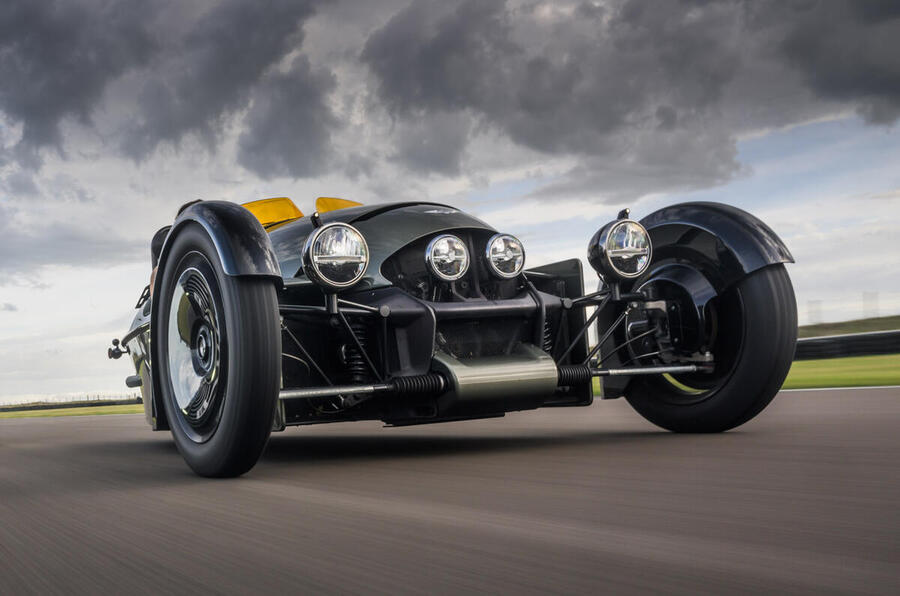The boss of Morgan has called for urgent clarity on how British low-volume sports car makers will be impacted by the UK government’s mandated electrification timeline.
Currently, manufacturers that sell fewer than 2500 cars in the UK are exempt from the zero-emission vehicle (ZEV) mandate, which requires mainstream firms to achieve an 80% EV mix by 2030, but it has yet to be confirmed whether these firms will be similarly spared from having to stop pure-ICE car sales from that date.
On current planning, the sale of new pure-ICE cars will be banned from 2030, with only hybrids capable of a “meaningful” electric range – the definition of which has yet to be confirmed – remaining on sale until 2035, at which point all new cars sold in the UK must be pure-electric.
The government is engaged in a consultation with car makers over potential adjustments to this pathway, as organic demand for EVs lags behind its mandated targets.
But Morgan MD Matthew Hole said there remains “a lot of ambiguity” around what smaller car companies can sell in the coming years and time is running out to make a decision.
Asked by what date he needs clarity about whether Morgan will be allowed any exemptions, Hole said: "To be honest, we are past it. To get a car in production for 2030 as an EV, we need two-and-a-half to three years, based on where we are today, so we've got a little bit of time left. But the clock is ticking pretty hard at the moment - and for manufacturers like us, that's a hard deadline. We have to plan our investment. I can't really find out on 1 January 2027; I'm planning my investment to 2030 now."
Morgan, like fellow lightweight specialists Caterham, Ariel and BAC, currently sells no hybrid or electric models and so stands to be dramatically impacted if it's unable to offer pure-ICE cars in its home market in five years’ time.
Hole said there is currently "just way too much ambiguity" in the UK compared with other markets around the world, adding: "If we need an EV in 2030 or we need an EV in 2035, they are two very different things, and they significantly change how we do our product planning going forward.










Join the debate
Add your comment
I'm surprised that Morgan haven't got an EV design well in hand,can't really see his problem he's got five years to make the change, the company already uses proprietary components such as BMW engines and the company has significantly increased it's prices since the Morgan family relinquished control of the firm. One way or another the move from ICE powered cars is going on there little chance of it turning back so the company must change or face the consequences
Won't there still be secondhand Morgan's?, who are going to service these ICE cars?, won't there be a business in servicing old Morgan's?
Long article but at the end of the day Sir Flip Flop will be using the consultation paper and any loop holes within it to break another manifesto promise.